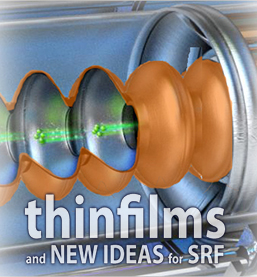Speaker
Description
The microscopic origins of Superconducting Radio Frequency (SRF) cavity breakdown by surface defects are still not completely understood. To locally study the electrodynamics of superconductors, a near-field magnetic microwave microscope was built. We study the 3rd harmonic response as a function of rf field amplitude and temperature. In previous experiments on Nb, two different types of nonlinearity were observed, which we call Low-field and Periodic. The Low-field response can be explained by the intrinsic response of the sample due to vortex semiloops created by the magnetic writer probe. As for the Periodic case, the response can be linked to the Josephson effect at or near the surface. We present new results for Nb3Sn films (from Cornell) and Nb films on Cu (from CERN). The Nb3Sn shows evidence for multiple superconducting transitions, probably because there are different Sn concentrations in the sample. In particular, there is a distinct phase with a transition temperature of about 5.5 K. The most prominent nonlinear response appears to be due to the intrinsic Low-field mechanism. The Nb film on Cu shows evidence for superconducting transitions below 9 K, perhaps due to oxides of Nb. For both of the samples, 3rd harmonic response measurement reveals the existence of lower-Tc regions.
Acknowledgement:
This work is funded by US Department of Energy / High Energy Physics through grant # DE-SC0017931 and the Maryland Quantum Materials Center.

